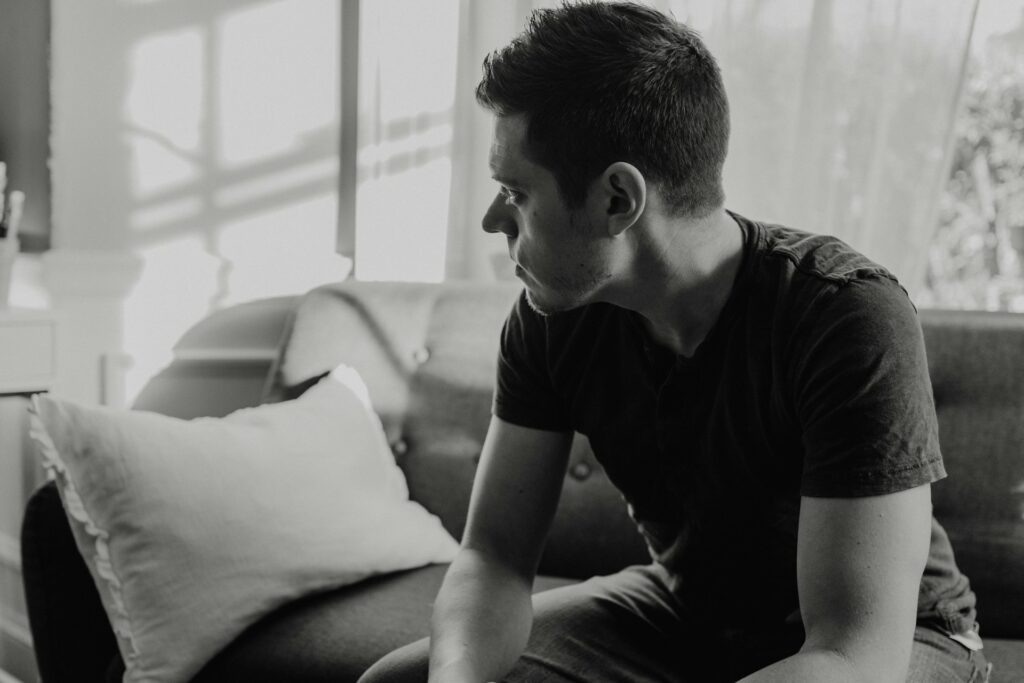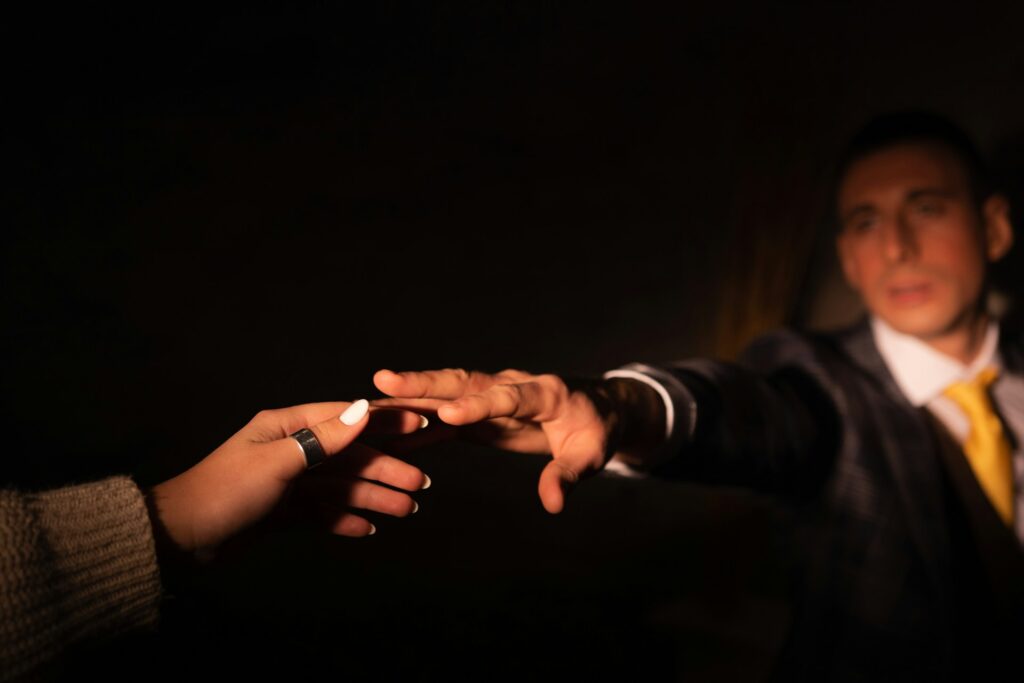Trust is the foundation of every close relationship. When broken trust occurs, its impact lingers for years, shaping how people connect. Many will not admit their pain directly. Instead, they reveal it through quiet behaviors that reflect fear, doubt, or self-protection. Recognizing these subtle signs allows partners to respond with patience and empathy.
They Guard Their Feelings Closely

When trust is damaged, vulnerability feels unsafe. Many people share only surface details and avoid revealing deeper fears or insecurities. This guardedness creates emotional distance and can leave partners feeling excluded. While it protects them from pain, it also prevents meaningful intimacy. Conversations often stay practical rather than personal, leaving relationships without the deeper closeness both people secretly desire. With time and patience, small acts of openness can begin to rebuild safety.
They Struggle to Believe Compliments

Words of kindness often meet resistance. Someone with broken trust may doubt if praise is genuine or offered for personal gain. Instead of feeling uplifted, they dismiss compliments or change the subject. This doubt comes from past experiences where flattering words masked dishonesty. Over time, this habit erodes their ability to accept affection openly. To truly reach them, partners need to back words with consistent actions. Gradual proof of sincerity helps restore confidence in genuine appreciation.
They Ask for Reassurance Repeatedly

After betrayal, many seek constant confirmation. They ask if their partner truly cares or if the relationship is stable. This need may appear excessive, but it eases their inner fears. Sadly, repeated requests can strain the bond if not handled with compassion. Partners may feel pressure, but reassurance is often the only thing calming insecurity. Over time, consistent honesty and reliability can reduce the frequency of these requests. Trust grows slowly, but it can be rebuilt.
They Avoid Making Long-Term Plans

Planning ahead requires faith in promises. For someone with lost trust, future commitments feel risky and uncertain. They may avoid booking trips, setting shared goals, or discussing long-term living arrangements. Keeping options open protects them from disappointment but also limits relationship growth. Partners might feel they are stalling, but it often reflects fear rather than disinterest. Gentle encouragement and small, low-pressure plans can help restore their comfort with thinking ahead together.
They Notice Small Inconsistencies Quickly

People who have faced betrayal become detail-oriented in ways others may not understand. If a story shifts slightly or actions clash with words, they notice immediately. While others overlook small changes, those with shattered trust view them as warning signs. Their vigilance serves as self-protection, but it can also create unnecessary suspicion. A late reply or a forgotten detail might spark worry. Over time, showing reliability and matching words with actions helps calm this heightened sensitivity.
They Keep Emotional Distance During Conflict

Arguments feel threatening to those carrying damaged trust. Instead of engaging, they withdraw to avoid further pain or rejection. They might use silence, short responses, or physical space to shield themselves. While they appear calm, their distance often reflects fear of abandonment. For partners, this reaction can feel cold, but it comes from deep worry rather than disinterest. Encouraging calm, respectful communication helps them feel safe enough to stay present during disagreements.
They Hesitate to Rely on Others

Relying on someone requires deep trust, and after betrayal, many prefer independence. They avoid asking for help, even when overwhelmed. This reluctance often looks like strength, but underneath lies fear of disappointment or rejection. They believe it is safer to carry burdens alone than risk being let down again. Unfortunately, this habit prevents healthy partnership. Gradual reliance, supported by reliability and patience, can slowly break down these barriers. It shows them dependence does not always equal weakness.
They Test Boundaries Subtly

Some people test their partner’s loyalty in indirect ways. They might cancel plans, act distant, or create small challenges to see how their partner responds. These tests are not about cruelty, but about seeking reassurance of commitment. If their partner responds with patience, trust slowly rebuilds. If not, fears feel confirmed, making it harder to relax. This cycle may frustrate both sides, but consistent support helps ease the need for constant testing. Over time, patience wins out.
They Show Caution With Physical Intimacy

Physical closeness requires emotional openness. When trust is broken, affection feels risky and even frightening. Someone may hesitate to initiate touch or withdraw during intimacy, fearing rejection or betrayal. This caution is less about attraction and more about vulnerability. They need reassurance, patience, and consistency before they feel safe again. Small, respectful gestures help them relearn comfort in closeness. Over time, these careful steps rebuild both emotional and physical intimacy in the relationship.
They Overanalyze Communication

Delayed replies or brief messages can spark worry. People with broken trust replay conversations, searching for hidden meanings or unspoken signals. They wonder if silence signals anger or disinterest, even when nothing is wrong. This overthinking creates stress and often leads to misunderstandings. A simple late reply can spiral into anxiety. Clear, honest communication helps reduce their habit of overanalyzing. Knowing what to expect reassures them that small shifts do not mean betrayal.
They Struggle to Forgive Mistakes

Even small errors feel bigger when trust has been fractured. A missed date or forgotten promise can trigger deep emotions. While others let such moments pass, they hold onto them longer, connecting them to past hurt. Forgiveness becomes harder because history colors current experiences. This does not mean they are unforgiving by nature. Instead, it shows how painful memories intensify reactions. With time, consistent respect, and genuine apologies, forgiveness slowly becomes possible again.
They Seem Independent to a Fault

Independence often masks fear of being let down. At first, it appears admirable, but it can signal reluctance to depend on anyone. People with lost trust may reject help, keep struggles private, or downplay their needs. While self-sufficiency is valuable, excessive independence prevents intimacy from fully developing. Partners may feel pushed away, even when closeness is desired deep down. Gentle offers of support, combined with patience, show that healthy dependence can feel safe again.
Closing Thoughts

Trust once broken reshapes how people behave in love. They guard emotions, hesitate with intimacy, and overanalyze small details. These patterns may feel challenging, but they are survival strategies built after hurt. Recognizing them helps partners respond with compassion rather than frustration. Healing damaged trust requires patience, empathy, and consistency. With time, reassurance, and genuine effort, love can overcome fear, and closeness can grow stronger than before.
Disclaimer: This article was created with AI assistance and edited by a human for accuracy and clarity.

